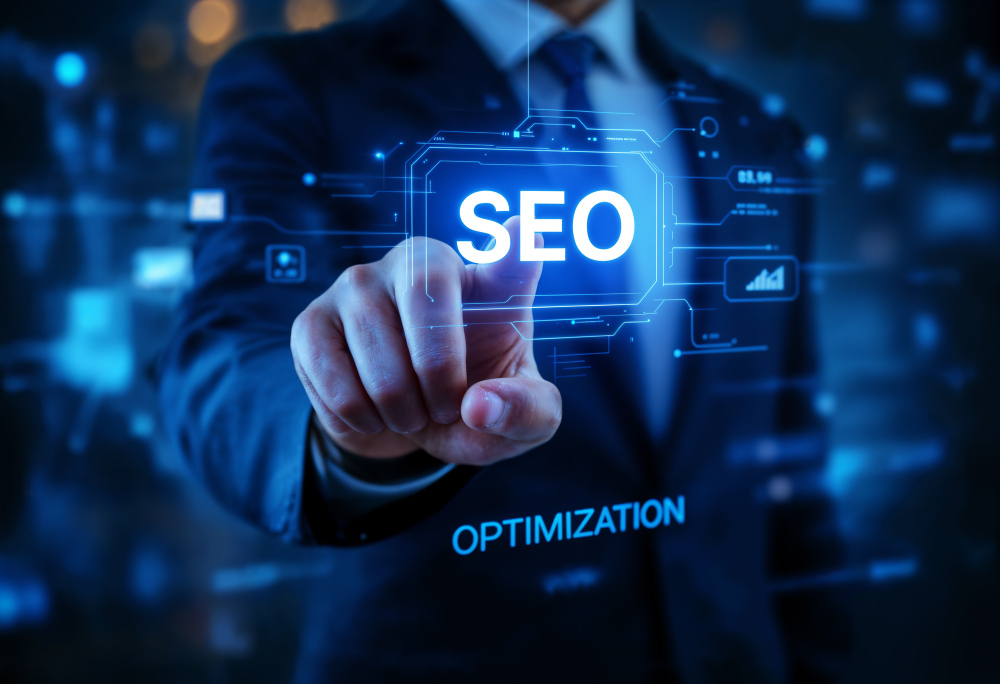
If you’ve ever typed “seo agency near me” into Google and wondered what happens next, you’re not alone. Choosing the right partner can feel opaque: similar promises, different prices, and wildly different results. This guide breaks down what a high-quality team should deliver—from discovery and strategy to technical fixes, content, links, reporting, and growth—so Bay Area businesses know exactly what to expect before they sign.
Throughout, you’ll see how search engine marketers, search engine optimisation companies, and search engine optimization agencies differ—and where they overlap—so you can hire with confidence.
What “SEO agency near me” really means today
Modern SEO isn’t guesswork or a bag of tricks. It’s a structured program that blends technical site health, intent-driven content, local visibility, authority building, and conversion optimization. At a minimum, expect:
- Clear, goal-tied strategy (traffic → leads → revenue)
- Measurable roadmaps and timelines
- Transparent workflows and artifacts (audits, briefs, sprints, reports)
- Ownership of deliverables and accountability for outcomes
For a grounding in the fundamentals, see the overview of Search Engine Optimization on Wikipedia for definitions and terminology.
Core services you should get
1) Technical SEO audit & fixes
Your agency should run a full crawl and prioritize fixes that improve indexation, speed, and crawl efficiency. Expect a punch-list with titles, owners, and deadlines—think canonical issues, duplicate content, broken links, XML sitemaps, Core Web Vitals, internal linking, schema, and mobile rendering.
2) On-page optimization that matches intent
Every important page gets a target query set, unique value proposition, structured headers, optimized media, and internal links. The work aligns with searcher intent (informational, commercial, transactional) and includes test-and-learn iterations.
3) Content strategy that maps to your funnel
A serious partner will build a content plan by cluster/topic, including briefs, outlines, and publishing cadence. Expect balance across problem-solving blog posts, comparison pages, FAQs, case studies, and local landing pages. Content must be human-first and conversion-oriented.
4) Local SEO & Google Business Profile
For San Jose businesses, local visibility is make-or-break. Your agency should optimize your Google Business Profile, manage categories, build consistent NAP citations, generate reviews ethically, and produce geo-targeted content that helps you win Map Pack rankings for queries like “near me,” “open now,” and neighborhood terms (e.g., Japantown, Willow Glen, North San Jose).
5) Authority building (links & digital PR)
No “black-hat” shortcuts. Expect outreach tied to useful content assets, expert commentary, industry directories, and partner co-marketing. Quality > quantity: relevant placements that real people visit.
6) Analytics, dashboards, & attribution
You should get a clean analytics setup (GA4 + Search Console), conversion tracking, and dashboards segmented by channel, funnel stage, geo, and device. Reports must connect rankings/traffic to pipeline and revenue, not vanity metrics.
7) CRO baked into SEO
Traffic without conversions is expensive. Look for A/B testing on headlines, offers, forms, and layout; session-recording insights; and structured hypotheses that tie changes to measurable lifts.
How search engine marketers, search engine optimisation companies, and search engine optimization agencies differ
- Bold strategists—aka “search engine marketers”: Often full-stack growth pros who blend SEO with PPC, social, and CRO to hit revenue targets. Good if you need cross-channel alignment.
- UK-style “search engine optimisation companies”: Typically emphasize organic visibility and content. The label is common in British and Commonwealth markets but may appear stateside in international firms.
- U.S.-centric “search engine optimization agencies”: Usually team-based, with specialists in technical SEO, content, and digital PR. Strong for complex sites and multi-location brands.
Any of these can be the right choice—what matters is scope, fit, and proof of results.
A realistic 90-day timeline
Weeks 1–2: Discovery & setup
- Stakeholder interviews, KPI alignment, analytics audit, Search Console connection, baseline benchmarks
- Technical crawl, high-impact quick fixes, content gap analysis
Weeks 3–6: Foundations
- Implement priority technical items (indexation, page speed, schema)
- Publish first content assets and optimize top landing pages
- GBP optimization and citation cleanup for local visibility
Weeks 7–10: Acceleration
- Topic clusters roll out; begin digital PR/outreach for authority
- Internal linking restructuring; conversion tests on key pages
- Dashboard finalization with goal tracking
Weeks 11–12: Review & scale
- Report on early wins (indexation, rankings, local pack appearances, demo/lead volume)
- Roadmap next quarter: bigger content initiatives, advanced link earning, and CRO sprints
What it should cost (and why)
Pricing varies by complexity, location count, and content throughput, but common models include:
- Monthly retainer: Best for ongoing growth. Expect a clearly defined scope (e.g., X content pieces, Y technical hours, Z outreach campaigns).
- Project-based: Good for audits, migrations, or one-time builds.
- Hybrid: Retainer for ongoing effort plus project sprints for large initiatives.
Whatever the model, insist on a deliverables calendar and business KPIs (lead volume, qualified pipeline, CAC/LTV) rather than just rankings.
KPIs that actually matter
- Organic revenue / pipeline created (primary)
- Qualified leads (MQL/SQL) from organic
- Local visibility: Map Pack impressions, calls, and direction requests
- Technical health: Indexed pages, Core Web Vitals pass rate
- Authority & coverage: Referring domains from relevant publications
- Content performance: Entrances, assisted conversions, and time to first ranking
For planning and tracking, the U.S. Small Business Administration’s resources on market research and marketing plans are helpful; see the SBA’s guidance on strategy building as listed on the U.S. government site.
What your agency needs from you
- Clarity on goals: Revenue targets, ICP, core offers, territories, sales cycle.
- Access: CMS, analytics, ad accounts (view), product experts for interviews.
- Speed: Prompt feedback on content and technical changes.
- Proof: Case studies, reviews, and data your agency can leverage in content and PR.
- Realistic runway: SEO compounds—expect meaningful momentum over 3–6 months with compounding gains thereafter.
Red flags & deal breakers
- Guaranteed rankings or secret “proprietary methods.”
- Link packages that look like paid lists or PBNs.
- No change logs or vague reporting (“we did optimization”).
- Thin content spun from AI without editing or expertise.
- One-size-fits-all plans that ignore your market, tech stack, or sales process.
Sample deliverables checklist (use this when you evaluate vendors)
- Technical audit (PDF/Slide) with prioritized fixes and owners
- Keyword & topic strategy mapped to funnel stages and locations
- Editorial calendar with briefs, deadlines, and accountable writers
- On-page optimization sheets for your top 20 pages
- Local SEO plan: GBP categories, review cadence, citation list
- Digital PR plan: asset ideas, outreach targets, success criteria
- Analytics & dashboard with KPI definitions and targets
- Quarterly roadmap tied to business objectives
How this plays out for San Jose companies
Competing in the Bay Area means sophisticated buyers, fast-moving categories, and dense SERPs. A local-savvy team will:
- Build landing pages for priority neighborhoods/zip codes (e.g., 95133) with unique offers and testimonials.
- Target “near me” and “open now” modifiers in copy and GBP posts.
- Reference local partners, events, and publications to earn relevant attention and links.
- Calibrate content with regional vernacular and seasonality (e.g., B2B budget cycles, tech-conference peaks).
- Track mobile performance closely—most “near me” queries originate on smartphones.
How to compare proposals (side-by-side)
Strategy clarity
- Do they translate your goals into a roadmap? Can they show sample work?
Resourcing
- Who writes? Who handles technical fixes? Who builds links? Names and resumes matter.
Measurement
- Do they forecast impact ranges and set KPI targets? How will they attribute leads and revenue?
Communication
- Weekly updates and monthly strategy reviews are standard. You should also get a named point of contact and escalation path.
Cultural fit
- Do they understand your industry language and sales cycle? Can they collaborate with your in-house team?
FAQs
1) What’s the difference between search engine marketers and search engine optimization agencies?
Search engine marketers often manage multiple channels (SEO, PPC, social, CRO) to drive revenue, while search engine optimization agencies focus primarily on organic search. Many businesses benefit from an integrated approach that starts with SEO foundations and adds paid channels for faster testing.
2) Are “search engine optimisation companies” the same as U.S. agencies?
The work is similar; the spelling is regional. Firms labeled as search engine optimisation companies tend to come from markets that use UK English. Judge by process, expertise, and results—not the spelling on the masthead.
3) How soon will I see results after hiring an seo agency near me?
Technical fixes and local improvements can move the needle within 30–60 days, but competitive keywords and authority growth typically compound over 3–6 months. Momentum accelerates as content depth and quality links build.
4) What should reporting from search engine optimization agencies include?
Expect channel-level performance (rankings, traffic), business outcomes (qualified leads, pipeline, revenue), and next actions. Reports should connect activities to KPIs and include a change log.
5) How many links do I need, and how do search engine marketers get them?
There’s no magic number. Emphasis should be on earning relevant, high-quality mentions through content assets, expert contributions, partner features, and digital PR—not buying links. Quality placements drive both rankings and referral traffic.
Final takeaways
When you search for an seo agency near me, you’re not just buying tasks—you’re hiring a growth partner. The right team brings structured strategy, transparent delivery, ethical authority building, and a relentless focus on measurable outcomes. Use the checklist above to compare vendors, insist on KPIs that map to revenue, and choose an agency that can collaborate seamlessly with your internal stakeholders. For definitions and historic context on SEO terms, see the full explanation on Wikipedia, and if you’re formalising goals and budgets, review marketing-plan basics from the SBA according to the official report. To talk with a local expert, contact The Digital Marketing Agency & Consulting Company LLC at (510) 706-3755, visit digitalmarketingagency-consultant.com, or stop by 422 N Capitol Ave, San Jose, CA 95133.



